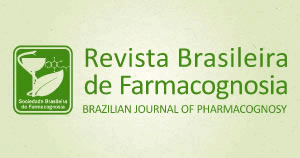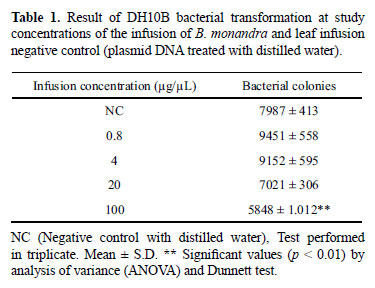Bauhinia monandra, commonly known as "cow's-foot", is native from Asia and widely used all over the world to treat a variety of illnesses, in particular diabetes. The high usage of the plant in Brazil and to fulfill the need of medicinal plant regulation by the Ministry of Public Health, we aimed at determining the genotoxicity, cytotoxicity and mutagenicity of an aqueous infusion from B. monandra leaves. The results were correlated to the chemical compounds found after phytochemical selection. Tests were performed in an in vitro system with plasmid DNA, in the presence and absence of exonuclease III, and in vivo system employing prokaryotic (transformation into competent DH10B bacteria) and eukaryotic (Allium cepa) assays. The infusion concentrations were 0.8 µg/µL, 4 µg/µL, 20 µg/µL and 100 µg/µL. The infusion concentrations did not cause mutagenicity or cytotoxicity, however the highest concentrations were able to induce breaks in DNA phosphodiester bonds and form abasic sites, an effect suggested by the presence of phenolic hydroxyls. The results revealed risks and benefits of plant extracts for therapeutic use and their effect on genetic integrity, especially when commonly employed as a hypoglycemic.
Bauhinia monandra; Leguminosae; Mutagenicity; Cytotoxicity; Genotoxicity; Escherichia coli; Micronucleus assay




